Pompeo Urges Biden To Stop Partnering With Russia On Iran Nuclear Deal
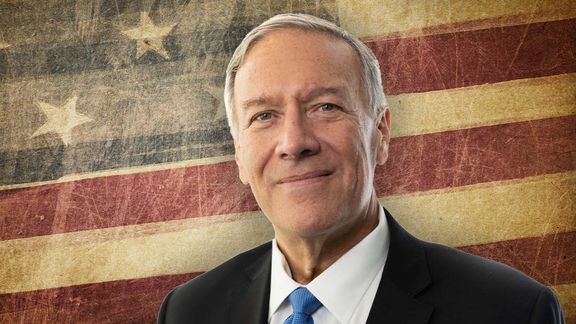
Former Secretary of State Mike Pompeo has called on President Joe Biden to stop working with Russia in Iran nuclear talks in Vienna.

Former Secretary of State Mike Pompeo has called on President Joe Biden to stop working with Russia in Iran nuclear talks in Vienna.
He added that “When China and Russia are on your side of the table negotiating ‘against’ Iran, you are putting America and Israel at risk”.
One day after the Russian invasion of Ukraine began, the United States announced that it will continue to work with Russia on reviving the 2015 Iran nuclear agreement.
State Department spokesperson Ned Price on Friday said that Washington will continue to engage with Moscow over efforts to prevent Iran from developing nuclear weapons, even though Moscow's invasion of Ukraine had made it a "pariah on the world stage”.
Earlier on Sunday, Israel's former national security adviser Meir Ben-Shabbat said Iran’s nuclear program is a far more direct threat to Israel’s security than the Ukrainian crisis, warning that Tehran can “take advantage of the global tumult in order to make progress on the nuclear program and other areas”.
Some have expressed reservations about continuing to involve Russia in high-stakes diplomatic and security issues, while Moscow has up-ended the international security structures by its attack on Ukraine with the declared aim of replacing its elected government and deciding its foreign policy course.
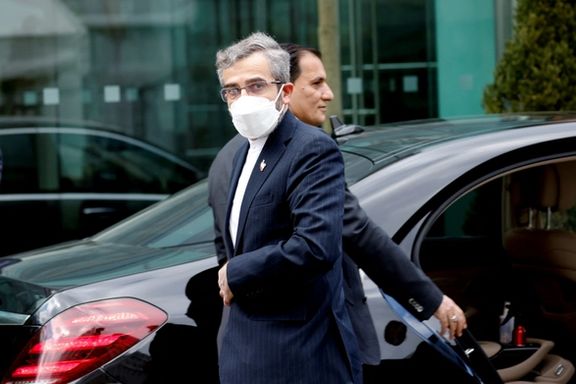
It is urgent to conclude negotiations over reviving a 2015 nuclear deal between world powers and Iran this week, France's foreign ministry said on Monday.
"There is indeed critical urgency to conclude the negotiations this week," spokeswoman Anne-Claire Legendre told reporters in a daily briefing.
Iran International reported on Saturday that according to Western and Iranian sources the United States has given Iran "an immediate deadline" to respond to a final package of Western proposals on reviving the 2015 nuclear agreement known as JCPOA.
Iran's foreign ministry said on Monday that "97-98 percent" of a deaft agreement is ready but three key issues remain that the West has not agreed with.
Iran has been demanding the lifting of more US sanctions than Washington is willing to accept. It also demads a firm guarantee from Washington that a future US government will not renege on the deal. The Biden Administration has said that constitutionally it cannot provide such a guarantee on behalf of a future president, as the agreement in question is not a treaty to be ratified by the Senate.
Iran's lead nuclear negotiator Ali Bagheri Kani, who flew to Tehran last week for consultations about the final draft of the deal, will meet the European Union's Enrique Mora, who coordinates the talks in Vienna on Monday.
Reuters on Monday quoted two sources close to the talks in Vienna as saying that Iran had submitted new demands, while continuing to insist on existing ones, including the removal of a US foreign terrorist organisation (FTO) designation against Iran's Revolutionary Guards (IRGC).
"Iran's stance after Bagheri's trip to Tehran has become even more uncompromising .... they now insist on removal of sanctions on the IRGC and want to open issues that had already been agreed," one of the sources said.
The Guards is a powerful faction in Iran that controls a business empire as well as elite armed forces and intelligence services. Dozens of its commanders have high-ranking positions in hardline President Ebrahim Raisi's government.
The FTO designation of IRGC by Washington in 2019, which was the first time the United States had formally labelled part of another sovereign government as a terrorist group, has caused further problems for Iran's sanction-hit economy.
Tehran also insists the International Atomic Energy Agency (IAEA) drop its case about Tehran’s nuclear work, objecting to an assertion by the UN nuclear watchdog last year that Tehran had failed to fully explain the presence of uranium traces found at several undeclared sites.
The sites in question are implicated in clandestine nuclear work two decades ago, abandoned when Tehran's nuclear activities came into public focus in 2002.
"We have answered the agency's questions. But instead of closing the politically-motivated case, they are using it to gain leverage in the talks," said an Iranian official in Tehran.
Observors are concerned that the Russian invasion of Ukraine can derail the Iran negotiations. Iran has sided with Russia and blamed the United States and NATO for the crisis. Russia has played a major role in the talks, often acting as mediator between Washington and Tehran.
With reporting by Reuters
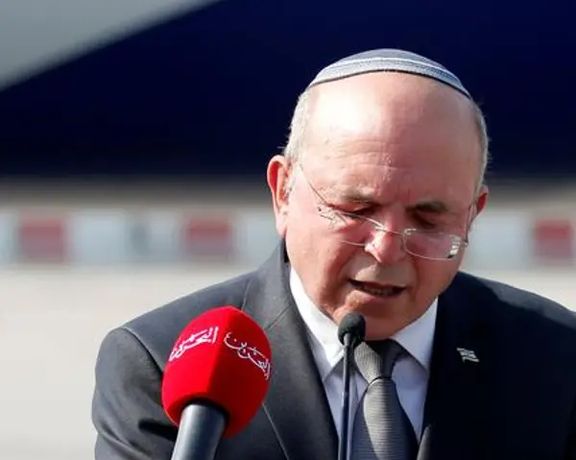
Israel's former national security adviser says the Russian invasion of Ukraine can spark a rush to conclude the deal between Iran and world powers.
Meir Ben-Shabbat, top Benjamin Netanyahu’s aide and Chief of Staff for National Security, says with the Ukraine crisis into its fifth day, the world’s attention as well as that of Israel has been focused on Eastern Europe, which can enable Tehran “to take advantage of the global tumult in order to make progress on the nuclear program and other areas”.
In an interview with the Times of Israelin Hebrew published on Monday, he described Iran’s nuclear program as a far more direct threat to Israel’s security, expressing concerns that “it looks like they are very close” to an agreement in Vienna.
“There could be effects in both directions”, he said, noting, “On the one hand, it could get in the way of the rush toward an agreement, because of the difficulty of bringing representatives to sign the agreement during this time. On the other hand, it could lead to the mistaken conclusion that a deal must be signed quickly in order to remove this issue from the agenda and to focus on the crisis in Europe”.
Some Iranian politicians also expressed cautious optimismthat the Russian invasion of Ukraine might speed up a nuclear deal between Tehran and Washington.
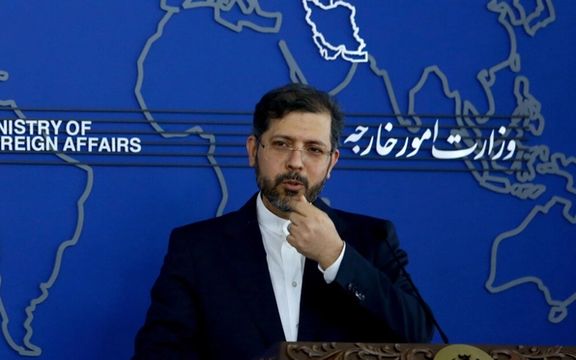
A draft agreement is “97-98 percent ready” in Vienna to revive the 2015 nuclear agreement, Iran’s foreign ministry spokesman said Monday in a press briefing.
Saeed Khatibzadeh acknowledged for the first time that a draft agreement between the two sides is ready, although earlier Tehran had dismissed a Reuters report quoting other sources about the existence of such a document.
Khatibzadeh did not mention what the remaining 2 or 3 percent of problems are, but both Iran and the United States in recent days had emphasized that important and serious issues remain unresolved.
Iran’s spokesman reiterated that the West must resolve three key questions to reach a deal, according to ISNA news agency in Tehran.
"Reaching a good deal is possible ... three key issues still remain to be resolved. The US and European powers have not taken political decisions on these major issues," Khatibzadeh said.
The United States, United Kingdom, France and Germany negotiating in Vienna have said that they have submitted their final offer to Tehran, and it is up to the Iranian government to respond.
Iran International reported on Saturday that Washington has imposed an “immediate deadline” demanding a response from Tehran. Both Western and Iranian foreign ministry sources confirmed that the deadline set was a matter of days.
Top Iranian oficials held several national security meetings in recent days, but sources told Iran International that a major meeting on Friday where Supreme Leader Ali Khamenei was present ended inconclusively.
Khatibzadeh on Monday said that Iran’s chief negotiator Ali Bagheri-Kani has returned to Vienna to pursue the talks.
Bagheri Kani, who flew to Tehran last week for consultations with Iranian officials, will "pursue the negotiations with a clear agenda aimed at resolving" the remaining issues, IRNA said.
On Sunday Khatibzadeh said that Iran will not accept any deadline set by the West.
"Iran accepts no deadlines," Khatibzadeh said, in apparent reaction to media reports that the United States had set a deadline for the nuclear talks in the Austrian capital Vienna.
Iran has made clear it wants an end to the oil and banking sanctions that are hurting its economy, while insisting also on the lifting of human rights and terrorism-related curbs.
On Saturday, Iranian Foreign Minister Hossein Amirabdollahian said Tehran was ready to "immediately conclude" a deal in talks to revive its 2015 nuclear accord with world powers if Western powers show real will.
Ambirabdollahin is due on Tuesday to report to the Iranian parliament on the progress of the talks, local media said.
On Friday, a senior U.S. State Department official said negotiators had made significant progress in the past week or so on reviving the deal, but very tough issues remained.
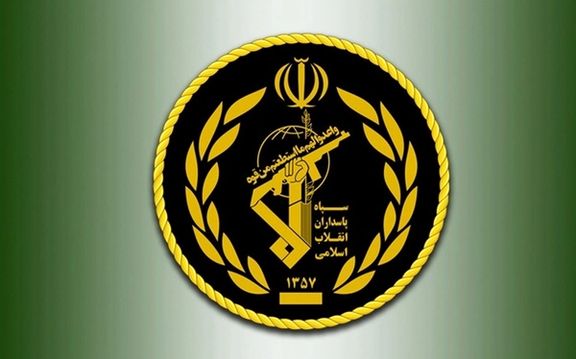
Iran’s parliament has reiterated Tehran’s demand to remove the IRGC from the US list of terrorist entities, as one of the necessary measures to revive the JCPOA nuclear deal.
The spokesman of the parliament's National Security and Foreign Policy Committee, Mahmoud Abbaszadeh-Meshkini, said on Sunday all the Islamic Republic’s demands in the Vienna talks should be met.
"When we say the lifting of all sanctions, it means institutions, companies and individuals; removing the Revolutionary Guard (IRGC) from the list of terrorist organizations is also one of the expectations of the Islamic Republic", he said.
Abbaszadeh-Meshkini added that there are five or six issues left in the Vienna talks, which are important and sensitive priorities for the Islamic Republic, noting that these are the country’s red lines.
Last week, 250 out of 290 members of parliament issued a statement urging President Ebrahim Raisi not to agree to any new nuclear deal without ensuring Iran's demands.
Iran has been insisting to obtain a political guarantee from the United States that it would not renege on a new nuclear agreement, and remove all sanctions imposed on Iran, whether for nuclear or other reasons, such as human rights violations or terrorism. The US has said it will remove only nuclear related sanctions.
Earlier In February, Israel urged the US not to remove the IRGC from its list of terrorist groups, saying the IRGC – which has been designated as a terror group since 2019 -- sponsors Hezbollah, Palestinian Islamic Jihad, and the Houthis.
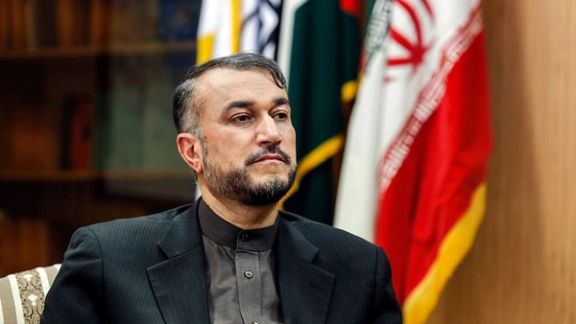
Iran said on Sunday it will not accept any deadline set by the West in negotiations to revive its 2015 nuclear deal with world powers.
Tehran also and "politically-motivated" claims by UN watchdog IAEA about its past nuclear work to be dropped, Iranian state TV reported.
Iran International reported on Saturday that according to Western and Iranian foreign ministry sources, the United States has given Iran an “immediate deadline” to respond to a final offer it has received in the framework of talks in Vienna.
The West has been warning Iran that time is running out to revive the 2015 nuclear agreement known as JCPOA, while Tehran is enriching more uranium.
According to some of these sources, meetings held in Tehran to make a decision ended inconclusively, while chief negotiator Ali Bagheri-Kani will return to Vienna Sunday night. Iran said Sunday that he will go back to the Austrain capital to “pursue the talks.”
The foreign ministry also demanded on Sunday the International Atomic Energy Agency end its investigation of Tehran’s clandestine nuclear activities in the early 2000s. "We have answered the agency's (IAEA) questions or politically-motivated claims ... that we think were baseless. These dossiers should be closed," Iranian Foreign Ministry spokesperson Saeed Khatibzadeh said, according to state TV's website. "Iran accepts no deadlines."
The IAEA has found traces of fissile material in different sites in Iran and has submitted questions but has not received satisfying explanations.